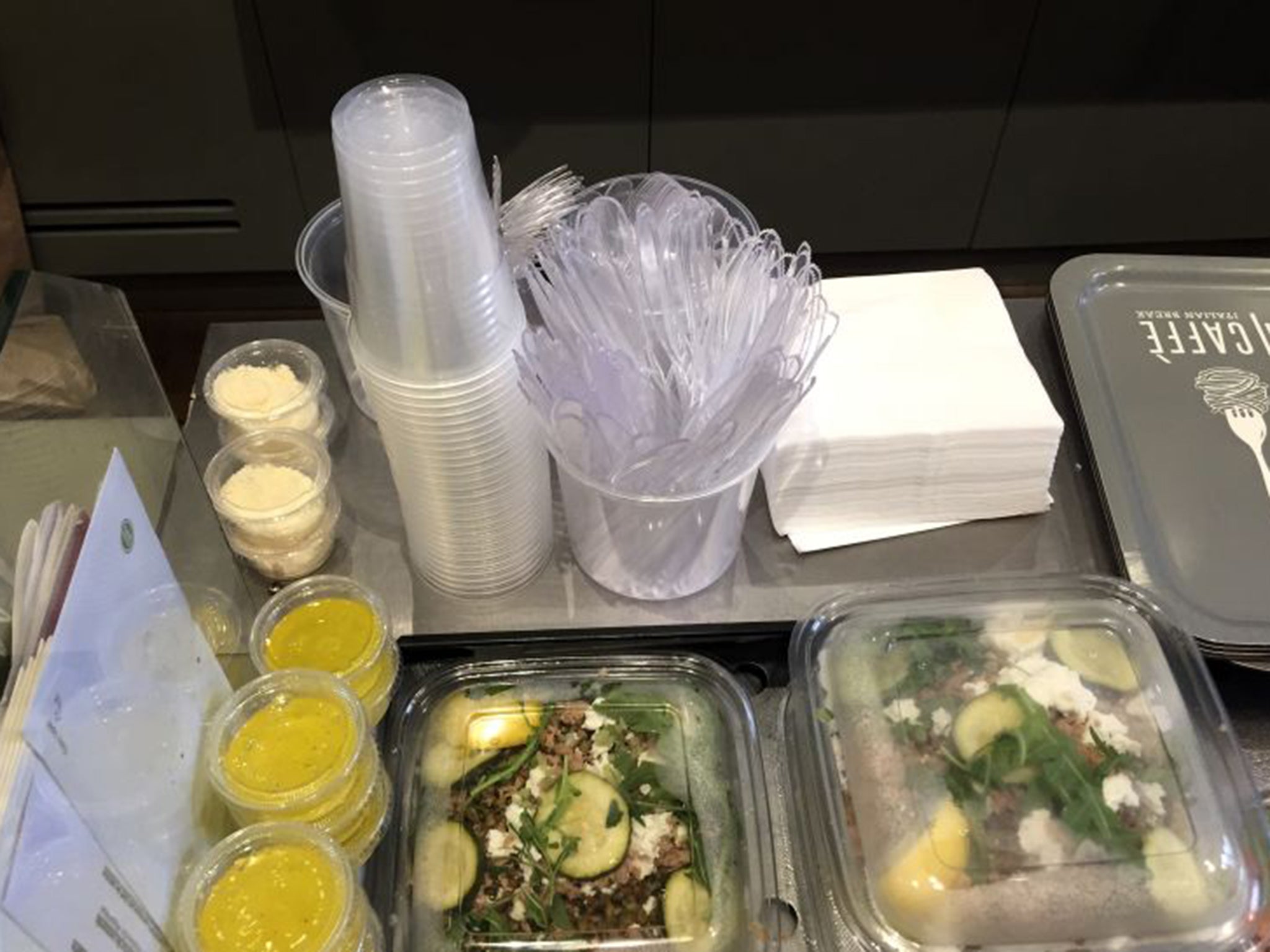France bans plastic cups, plates and cutlery
Critics claim the new law violates European Union rules on free movement of goods

Your support helps us to tell the story
From reproductive rights to climate change to Big Tech, The Independent is on the ground when the story is developing. Whether it's investigating the financials of Elon Musk's pro-Trump PAC or producing our latest documentary, 'The A Word', which shines a light on the American women fighting for reproductive rights, we know how important it is to parse out the facts from the messaging.
At such a critical moment in US history, we need reporters on the ground. Your donation allows us to keep sending journalists to speak to both sides of the story.
The Independent is trusted by Americans across the entire political spectrum. And unlike many other quality news outlets, we choose not to lock Americans out of our reporting and analysis with paywalls. We believe quality journalism should be available to everyone, paid for by those who can afford it.
Your support makes all the difference.France has passed a new law to ensure all plastic cups, cutlery and plates can be composted and are made of biologically-sourced materials.
The law, which comes into effect in 2020, is part of the Energy Transition for Green Growth – an ambitious plan that aims to allow France to make a more effective contribution to tackling climate change.
Although some ecologists’ organisations are in favour of the ban, others argue that it has violated European Union rules on free movement of goods.
Pack2Go Europe, a Brussels-based organization representing European packaging manufacturers, says it will keep fighting the new law and hopes it doesn't spread to the rest of the continent.
"We are urging the European Commission to do the right thing and to take legal action against France for infringing European law," Pack2go Europe secretary general Eamonn Bates told The Associated Press. "If they don't, we will."
Mr Bates believes there is no proof the biologically-sourced materials are more environmentally beneficial and that the ban might make the situation worse as people may misunderstand the extent of degradability.
"[The ban will] be understood by consumers to mean that it is OK to leave this packaging behind in the countryside after use because it's easily bio-degradable in nature. That's nonsense! It may even make the litter problem worse," he said.
Join our commenting forum
Join thought-provoking conversations, follow other Independent readers and see their replies
Comments